- Poll dancing - 23rd January 2026
- Paper thinner - 22nd January 2026
- Jobs for the boys and girls - 21st January 2026
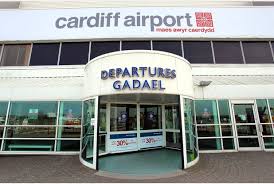
Officials at the biggest airport in Wales, which was bought using taxpayers’ money for £52 million, when a Scottish equivalent was purchased for £1, are hoping the easing of pandemic restrictions, will halt the popularity of ‘staycations’, and lift it off the very bottom of the league table.
This information could have special resonance on today’s Easter Bank Holiday Monday, as it is traditionally seen as the start of the tourist season for the year, and we are emerging from an unprecedented global crisis, which has hit companies dependent on travellers particularly badly.

Controversial Cardiff Airport (CA), though, has been affected worse than others
Passenger numbers there have plunged by 87 per cent during the height of the pandemic, with travellers falling from 1,656,085 in 2019 to just 219,984 in 2020. Southampton Airport suffered an 83.4 per cent decline, London City Airport saw a drop of 82.3 percent in passenger figures, with numbers at Leeds-Bradford Airport going down by 81.2 per cent.
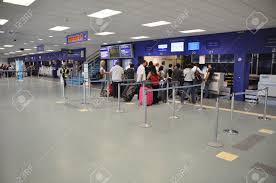
Even those in charge were pessimistic. CA was “wiped out” by Covid-19 and could take four years to recover, according to the Chief Executive Officer (CEO) Spencer Birns, who warned that the pandemic had been the “most challenging time ever” for the airport.
He stated earlier this month: “We got wiped out, pretty much, by the Covid crisis, this time last year we were lucky to see 400 people a week coming through the building”.

The business received an £85 million bailout from the Welsh Government (WG), which Mr Birns admitted earlier had kept it afloat. But one worker there has told us: “We all know it’s been hard, but the bosses are hopeful about the future. They believe the popularity of holidaying at home will wane, and more families will want to use Cardiff to fly abroad”.

Seemingly endorsing this optimism are the new routes which have been announced from CA by the low-cost Hungarian carrier Wizz Air (WA). The managing director, Marion Geoffroy, said bookings for its inaugural summer season, which started with flights to Spain, Portugal, Cyprus and Egypt, were encouraging. She said jubilantly: “From Cardiff it is a full leisure type of traffic today serving places such as Greece, Egypt, Spain and the Canary Islands”.

However there is a long way to go, and deep unease is shown among onlookers about the long term future of the airport, as well as the fact that it does not appear to be challenging the far more popular Bristol Airport (BA) .
The CEO of the budget airline Ryanair Eddie Wilson, explained some of the dilemma for CA.
With an independent media playing an important role, he told the Cardiff-based newspaper South Wales Echo (SWE), and website WalesOnline (WO): “You look at it and say, ‘Why are they (airlines) in Bristol, not in Cardiff?’ You can be sure it’s to do with cost, and cost just translated to lower fares…”


One critic said online about CA: “I do really worry about the long term viability…”, while others reported: “Unfortunately Cardiff is too close to Bristol…”, and “I wouldn’t call Cardiff a major airport…”. Another outraged traveller said on CA’s own Facebook (FB) page earlier, that he was “not happy” he now had to fly from “bloody Bristol”. A further detractor announced: “There has never been sufficient demand in the winter from Cardiff”. A fellow tourist proclaimed: “I flew to Tenerife on 13th Dec from Cardiff. Only 45 of us on the flight”.
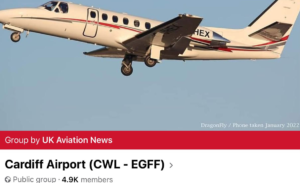
Huge concern from flyers came on other sites too, after an internal service, which had been recently restored, was suspended. Last year, direct flights from CA to Belfast were introduced, operated by Eastern Airways, but, even though the flights were greeted with enormous fanfare, the route has now been cancelled. A Welsh website which reported the disturbing news, described CA as “troubled”.
Another attacker of CA, said online that questions should be asked of the Welsh Parliament/Senedd Cymru (WP/SC), while a different one stated that it was cheaper to fly from Bristol. A further critic, included in his comments a spoof news report, with a remark from a CA executive: “Never mind, we will just apply to our pals at the WAG (Welsh Assembly Government, the former Welsh Government) for another massive donation of tax-payer cash.”.
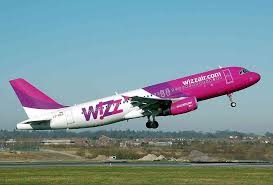
Other fury was directed at WA, after it had earlier postponed flying from the airport. An aggrieved customer posted: “I had 5 flights booked with Wizz air for this year and had paid for club membership for 12 months. They then pulled the plug. So I now have credit notes. I hope they do actually start next year but I won’t be booking until I know for sure!”.
Such exasperation about events surrounding CA, emphasise how The Eye have long been alone in publicising problems at the airport, which are only now reflected by reports in the mainstream media, and in remarks by senior politicians. UK Aviation News has reported: “The future of Cardiff Airport (CWL/EGFF) has been thrown into doubt today following comments made by the Welsh Labour-controlled Government that owns the airport”.
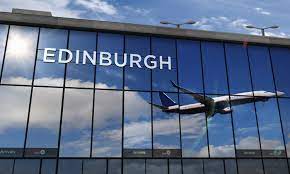
The remarkable episodes at CA have even been the subject of our satirical writer Edwin Phillips. They are set against a picture of thriving airports in Scotland, which are almost the same distance apart as CA and BA. The time taken travelling between Edinburgh and Glasgow airports is over an hour, while it is only 18 minutes more between CA and BA, yet both are successful because their services complement each other.
These critical comments also seem to confirm other worrying information about CA, with a recent expansion at BA, appearing to hammer yet another nail in the coffin of the Welsh airpot. One aviation expert said to The Eye: “This (BA’s expansion) might be positive for Bristol, but it is TERRIBLE for Cardiff. I just don’t see how it can survive”. Another said: “Coming on top of everything else, this may be the death knell for Cardiff Airport. It is just in the wrong place, and people don’t want to fly from there”.

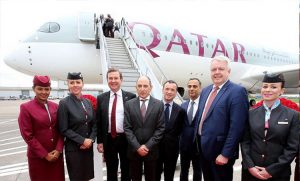
Meanwhile, in stark contrast to the fanfare from senior officials, politicians, and the mainstream media in Wales when a link-up was announced between CA and the state-run Qatar Airways (QA), the Welsh Deputy Minister for Climate Change, Lee Waters, MS, acknowledged that providing incentives to airlines, as they have done with QA would be against climate change policies.
He admitted to other WP/SC politicians: “I don’t think that subsidising and encouraging domestic air travel is in keeping with the challenge of climate change that we have and that the Prime Minister is trying to claim great international leadership on; I think it is a contradiction”.

Other politicians, however, were disconcerted by the announcement. The Conservative Deputy Minister for Transport Natasha Asghar, MS, said: “The minister’s comments were somewhat surprising given the number of taxpayer handouts Cardiff Airport has received since being taken into public ownership eight years ago by Labour.
“It is a little hypocritical of Labour to say subsidising air travel is a bad thing, when they’ve pumped in hundreds of millions of pounds of taxpayer cash, and continue to do so, into their failed vanity project. If Labour ministers are planning to stop subsidising Cardiff Airport because it flies in the face of climate change, then it raises some serious questions over its future. I have no doubt that Cardiff Airport could become a thriving transport hub but after this latest intervention its future is now hanging by a thread”.

The planning approval for the expansion at BA, casts a critical light on the purchase of CA using millions of pounds of public money in the first place. It was bought by the Welsh Government (WG) in 2013 for £52 million, while the Scottish Government (SG) purchased Glasgow Prestwick Airport (GPA) for just £1, yet a valuation of Cardiff’s in March last year said it was worth only £15 million.
Since the public acquisition, the WG has provided over £130 million in support in the form of loans and equity investment. There has also been around £3 million in subsidies for the Cardiff to Anglesey air link as well as unknown amounts of incentives to airlines, some of which pulled out as soon as the money stopped.

But in December 2012, the First Minister of Wales (FMW) at the time, Carwyn Jones, had said, when the airport was about to be obtained, that it should make a “return to the Welsh taxpayer”.
Plaid Cymru (PC) welcomed the announcement as well, and declared that CA needed to be a “shop front” for Wales, but the Conservatives (C) demanded evidence that nationalisation would provide value, and the Liberal Democrats (LD) warned it would become a “money pit” for public funds, which could, now, have been borne out.

However, the man in charge blamed the WG, even in the face of ministers spending millions of pounds to keep his airport afloat. Apart from saying CA was “wiped out” by Covid-19, Mr Birns also earlier told a committee at the Welsh Parliament/Senedd Cymru (WP/SC): “There was more traffic handling at other airports than there was at Cardiff, but then don’t forget we’ve been in a position in Wales where, and quite rightly so, the government have been so heavily focused on the health of the nation, that actually encouraging people not to travel overseas has been a major factor in the Welsh government’s approach”.

Perhaps they are banking on that factor not being so relevant in years to come, as the lifting of Covid restrictions might mean CA no longer languishes at the very bottom of the passenger league table.
But it’s a BIG ask…
Tomorrow – how a social media account has ceased to exist, which belonged to a controversial ‘comedian’ who abused senior politicians online, was investigated by the police, made sick ‘jokes’ to the public, and founded a nationalist Welsh newspaper which lasted only eight months.
 Details of our Editor Phil Parry’s astonishing career (including being the first to reveal uncomfortable facts) as he was gripped by the rare neurological condition Hereditary Spastic Paraplegia (HSP), have been released in a major book ‘A GOOD STORY’. Order it now!
Details of our Editor Phil Parry’s astonishing career (including being the first to reveal uncomfortable facts) as he was gripped by the rare neurological condition Hereditary Spastic Paraplegia (HSP), have been released in a major book ‘A GOOD STORY’. Order it now!
Regrettably publication of another book, however, was refused, because it was to have included names.










